Feline Stomatitis: Understanding One of the Most Painful Oral Diseases in Cats
When cats stop eating, paw at their mouths, or drool excessively, severe inflammation called stomatitis may be to blame. This painful immune reaction affects the gums and oral tissues, making even soft food unbearable. With advanced dental care and immune-modulating therapies, many cats can regain comfort and quality of life.
At St. Petersburg Animal Hospital and Urgent Care, our family-owned practice combines transparent pricing with comprehensive care. Whether your cat needs a same-day evaluation or specialized treatment, our experienced team provides personalized attention without the corporate feel.
What Makes Feline Stomatitis So Painful?
Understanding the Inflammatory Process
Feline stomatitis is a severe inflammatory condition that affects the soft tissues of the mouth, including the gums, tongue, and throat. Unlike mild gingivitis, stomatitis creates deep, ulcerated lesions that make every movement of the mouth excruciating. Cats with this condition often stop eating not because they lack appetite, but because the pain is simply too much to bear.
The inflammation in feline gingivostomatitis typically concentrates around the back molars and extends into the throat area. The immune system overreacts to bacteria and plaque on the teeth, creating a vicious cycle where the body’s defense mechanism becomes the source of ongoing damage.
Common symptoms include:
- Excessive drooling, often tinged with blood
- Severe bad breath that worsens over time
- Visible reluctance to eat or chew
- Weight loss despite apparent hunger
- Pawing at the mouth or face
- Decreased grooming, especially around the face
Because these signs can develop gradually, many owners initially attribute the changes to aging or pickiness. However, stomatitis requires immediate veterinary attention. Our dental care services include thorough oral examinations to identify inflammation before it progresses to advanced stages.
What Triggers Stomatitis in Cats?
The Complex Causes Behind the Pain
While researchers continue studying the exact mechanisms, stomatitis appears to result from an inappropriate immune response to normal oral bacteria. Some cats develop this exaggerated reaction due to viral infections, genetic predisposition, or a combination of factors that overwhelm their immune defenses.
Dental disease plays a significant role in triggering and worsening oral inflammatory disease in cats. Plaque and tartar buildup provide surfaces where bacteria thrive, stimulating constant immune activation. Even after professional cleaning, some cats continue experiencing inflammation because their immune systems remain hypersensitive to any bacterial presence.
Risk factors include:
- Previous infection with feline calicivirus or feline immunodeficiency virus
- Chronic exposure to dental plaque and bacteria
- Genetic susceptibility in certain breeds or family lines
- Compromised immune function from other diseases
Purebred cats, particularly Siamese, Persian, and Himalayan breeds, appear more vulnerable to developing stomatitis. However, any cat can develop this condition regardless of breed or background.
Understanding these underlying causes helps veterinarians develop targeted treatment plans. Our internal medicine services include comprehensive evaluations to identify contributing factors and co-existing conditions that may complicate treatment.
How Veterinarians Diagnose and Treat Stomatitis
The Diagnostic Process
Accurate diagnosis requires more than a quick look inside the mouth. Veterinarians perform complete oral examinations, often under sedation, to assess the full extent of inflammation and rule out other conditions like oral tumors or tooth root abscesses.
Dental X-rays for pets reveal hidden problems beneath the gum line, including tooth root infections and bone loss that aren’t visible during visual examination alone. Blood testing evaluates overall health status and screens for viral infections that may contribute to immune dysfunction.
These diagnostic tools help distinguish stomatitis from other painful mouth conditions and guide treatment decisions. Some cats have isolated dental disease requiring targeted extractions, while others need more aggressive intervention for widespread inflammation.
Medical and Surgical Treatment Options
Treatment for stomatitis typically combines medical management with surgical intervention. The goal is reducing bacterial load in the mouth while modulating the overactive immune response.
Initial medical management may include:
- Antibiotics to control bacterial populations
- Anti-inflammatory medications for pain relief
- Immune-modulating drugs to reduce excessive inflammation
- Nutritional support for cats struggling to eat
However, most cats with moderate to severe stomatitis ultimately need tooth extractions. Removing the teeth eliminates the surfaces where plaque accumulates, dramatically reducing the bacterial trigger for inflammation. While this sounds drastic, cats adapt remarkably well to eating without teeth, and many owners report their pets seem happier and more comfortable than they’ve been in years.
Dental cleaning for pets under anesthesia allows veterinarians to perform thorough extractions safely while managing pain effectively. Our dentistry services include advanced pain protocols and careful monitoring to ensure your cat’s comfort throughout the procedure and recovery.
Why Regular Dental Care Matters for Prevention

Building a Foundation for Oral Health
While stomatitis can develop even with excellent care, regular dental maintenance reduces risk and helps catch problems early. The importance of dental care for cats extends beyond preventing stomatitis to protecting overall health, as oral bacteria can spread to other organs through the bloodstream.
Professional cleanings remove tartar that home care cannot address, while routine examinations detect early inflammation before it becomes severe. For cats with stomatitis, ongoing dental monitoring helps assess treatment effectiveness and adjust management strategies as needed.
At-home dental care supports professional treatment but cannot replace it. Brushing your cat’s teeth, offering dental treats, or using water additives may help reduce plaque between veterinary visits. However, cats showing signs of mouth pain need immediate professional evaluation rather than home remedies alone.
Our wellness programs include dental assessments as part of comprehensive preventive care, helping identify oral health issues before they progress to painful conditions like stomatitis.
Recognizing Warning Signs Before They Become Emergencies
What Pet Owners Should Watch For
Early intervention dramatically improves outcomes for cats with stomatitis. Recognizing subtle changes in behavior helps you seek veterinary care before the condition becomes debilitating.
Watch for these early warning signs:
- Reluctance to eat hard food while accepting soft food
- Decreased grooming, leading to an unkempt coat
- Sitting near the food bowl without eating
- Vocalizing or crying when attempting to eat
- Dropping food from the mouth while chewing
- Increased irritability or withdrawal from interaction
These symptoms often develop gradually, making them easy to overlook until they become severe. Understanding the stages of periodontal disease in pets helps owners recognize when inflammation progresses beyond normal dental disease into something more serious.
If your cat shows any combination of these signs, don’t wait for a regular checkup. Our urgent care services provide same-day appointments for cats experiencing oral pain or difficulty eating. As a locally owned practice, we understand that dental emergencies can’t always wait for scheduled visits.
Taking Control of Your Cat’s Oral Health
Stomatitis causes severe pain, but it doesn’t have to control your cat’s life. With prompt diagnosis, appropriate treatment, and ongoing monitoring, many cats achieve complete or near-complete resolution of symptoms. The key is recognizing problems early and working with a veterinary team that provides comprehensive, personalized care.
At St. Petersburg Animal Hospital and Urgent Care, we combine advanced dental capabilities with compassionate, family-centered service. Our stable team knows your cat’s history and works with you to develop treatment plans that fit your pet’s needs and your family’s circumstances.
If your cat shows signs of mouth pain or has been diagnosed with stomatitis, contact us today for a thorough evaluation. We offer transparent pricing and same-day availability to help your cat find relief as quickly as possible.

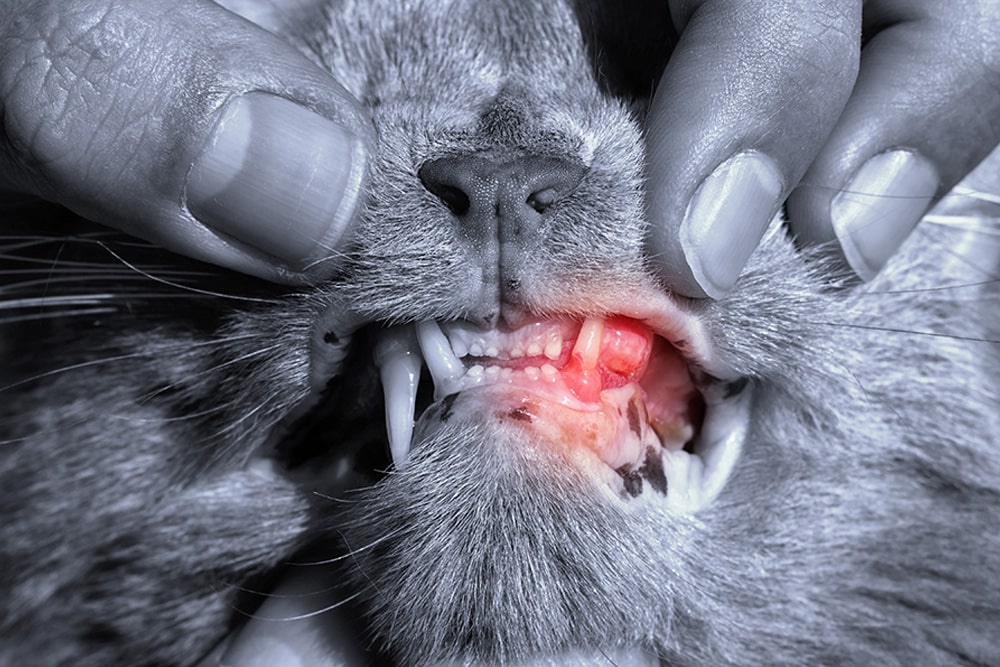
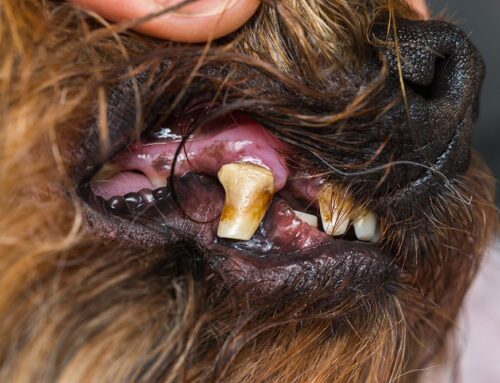
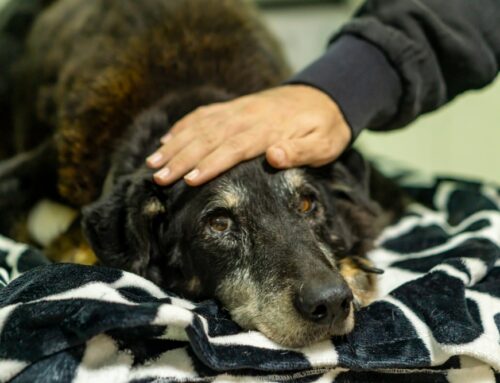
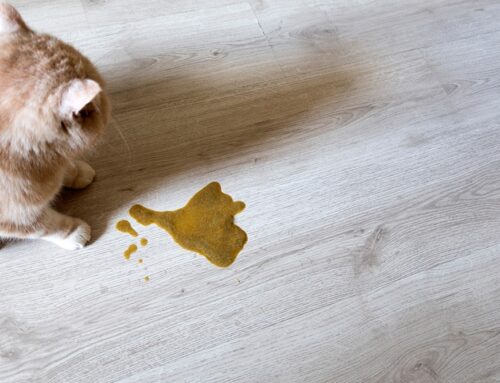
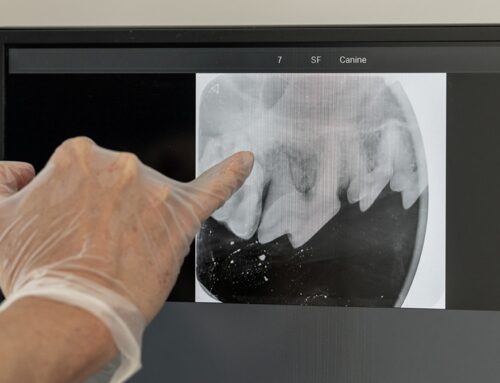

Leave A Comment